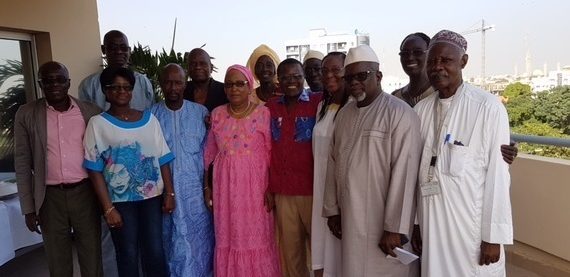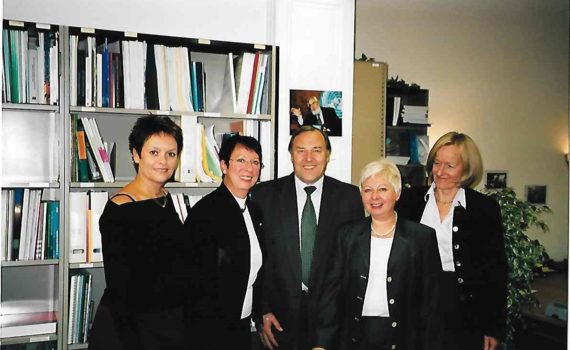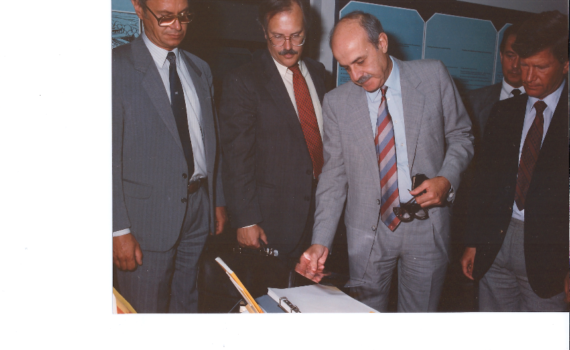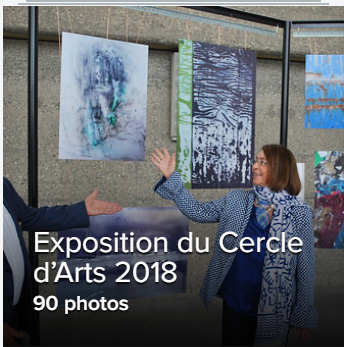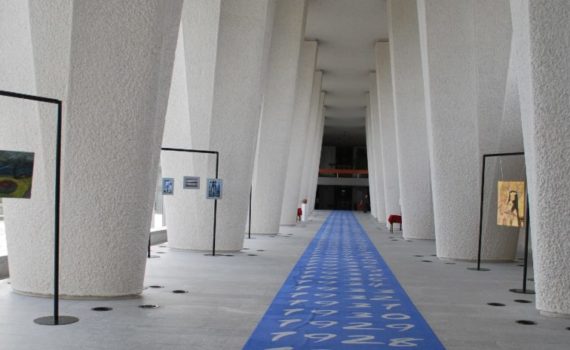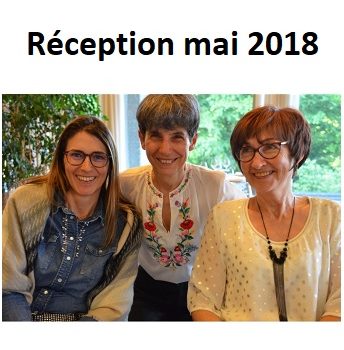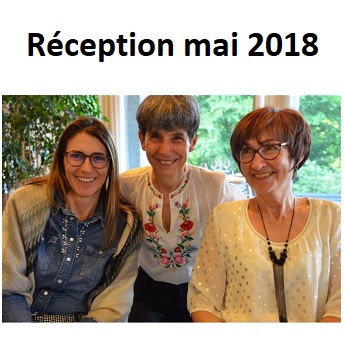In 1952, the ILO lunched a major field programme assisting member States in establishing centres for vocational training. This was followed three years later by another programme in productivity improvement through management training. Both programmes witnessed a rapid expansion for two reasons. First, many countries in the developing world had recently acceded to independence and human resources development was a top priority; Secondly, The UN system had just established a “Special Fund” aimed at financing technical cooperation programmes, the Fund later became “United Nations Development Programme” or UNDP. Hence to finance its training operations, the ILO could resort to UNDP, if financing was available. In the early 1960’s, both activities in vocational and management were put under one umbrella that of a “Human Resources Development” Department later changed to “Training Department”.
Pre-occupation with field operations was pre-dominant from the 1950’s to the early 1970’s. Headquarters staff was mainly involved in supporting field activities.
In the early 1970’s, the focus changed to make the training activities more relevant to changing needs. Thus apart from field operations, the Training activities encompassed other means of action such as research, publications, meeting and conferences. Activities were conducted through four branches, vocational training, management development, vocational rehabilitation and a newly created training policies branch, which apart from advising governments on national policies in human resources development acted as a think tank to steer the department activities in new directions such as those experienced as a result of structural adjustment or advances in technology.
New Directions:
In vocational training, modular training curricula were introduced, this allowed flexibility in the shift from one occupation to another, hence, for example, a trained electrician can change occupation to a specialist in car electric systems by attending a couple of training modules in that area. Six persons at headquarters worked on the development of training modules thoroughly illustrated for various occupations, financed by Germany, Sweden and Switzerland, who wanted these modules for their own proper use as well.
In management training, research led to the establishment of a new vibrant programme for small business based on new premises, linking training to financing and to advisory services on the spot, and developing specific training programmes for various sectors, such as small contractors, small retailors etc. In the management area, rather than concentrating on the industrial sector as was the case, training was undertaken for managers in sectors such as construction, transport and services, all such sectors that were expanding in a period of development and adjustment. To take one example, when the famine hit Ethiopia in the 1980’s, Germany provided 500 Mercedes trucks to ferry food to the interior while the ILO management development branch provided the logistic expertise needed to decide on routing, setting up fuelling, storage and maintenance areas, and fleet management. Similarly, management training in construction and transport were introduced with great success and financed by a multitude of sources.
In vocational rehabilitation, the term “ handicapped” used only for the physically handicapped, was redefined to encompass other symptoms such as alcoholics and those afflicted by drug addiction. This resulted in an expansion of activities and sources of funds readily available to finance them.
All these new directions, led to a vast expansion of the activities of the department which in the 1980’s became the largest ILO department or at least on par with the Employment Department, the other major ILO activity. In the 1980’s the training department employed 100 staff at headquarters and some 400 experts and consultants working in some 80 different countries.
Other activities presenting current pre-occupations:
It may come as a surprise to some that current challenges such as environmental issues, equality, changing working methods as a result of artificial intelligence and new work organization and job design were addressed by the department some 40 years ago.
Thus, the department introduced environmental training in its management programmes. This was not introduced as a separate programme, but as apart and parcel of existing programmes, for example, in production management training, introducing the notion of better job design so as to reduce waste, the treatment and utilisation of waste, in marketing, better packaging that are environmentally friendly and avoiding the throw away spirit in advertising and so on. In Equality, a professional was appointed at headquarters whose function among others encompassed the vetting of all new projects to make sure that equality concerns are addressed and to include equality as an evaluation criterion. In artificial intelligence, the department undertook a three years research to uncover what six leading countries in that area were doing in education and training for artificial intelligence and to provide guidance in that field. Two International meetings on training for artificial intelligence were held. The result of that work financed by Germany was published. In new forms of work organization, Norway financed a three years experiment in transferring management working methods based on Norwegian, Swedish and Japanese experiences to two countries, India and Tanzania. The results were published in the ILO review.
Funding:
The training Department in the 1980 believed in diversifying its sources of funding rather than relying soley on the ILO and the UNDP. Contacts were established with a number of donors. As a result, no less than ten governments contributed directly to the training department activities, be it in research or direct assistance to various countries. Furthermore, the department pioneered a new approach that targeted World Bank funded projects. To comply with the Bank’s preconditions, it entered into competitive bidding against various well-established consulting and training firms. Preparing each bid required an expenditure of $20,000 to $30,000. If won this could amount to $2 to 4million dollars project, for which the ILO earned 10 per cent management fees. Entering bidding operations went on for a year, until the official green light was given by the top ILO management. This prompted other departments then followed that lead.
Some may wonder if these expanded activities and staff costs may not have constituted a burden on the ILO budget. In fact the opposite is true. The Training Department was a money earner for the ILO. To finance its staff, and other activities such as meetings, missions and so on, the ILO allocated $5 million yearly to the Department. The department generated over $ 8 million in revenue yearly. The volume of technical cooperation projects amounted to around $ 75 million per year, of which the ILO took as management fees anywhere between 10 and 13 per cent. This generated around $ 7 million as a conservative figure. But the department produced six of the ten best sellers of the ILO including numbers 1, 2 and 3, best sellers all in the management field. Annual sales revenue of these publications amounted to $ one million. The number one best seller was a 500 pages book with over 100 illustrations, called “Introduction to Work Study” of which George Kanawaty is the author of the revised editiion and deals with practical approaches to improving efficiency at work coupled with guidance to improving job satisfaction. That book sold some 300,000 copies. A record for any UN publication was translated in 8 languages including Russian and Chinese and printed under lLO license in 7 other countries. That book alone, which was updated a couple of times to include issues related to computerisation and robotics, generated over $12 million income to the ILO.
The end
In 1990, a new Director-General took over who decided to shift ILO emphasis to other activities, mainly the Declaration. This year coincided with my own retirement. The Training Department was then dismantled with its various components either eliminated, vastly reduced in size or so much merged with other activities, to make it un-recognisable. And so the curtain fell on the largest ILO department.
____________
The author, George Kanawaty, after serving nine years in ILO technical cooperation programs in Asia, Africa and the Middle East, became chief of the Management Development programmes at Headquarters from 1972-1980 and Director of the Training Department from 1980-1990.
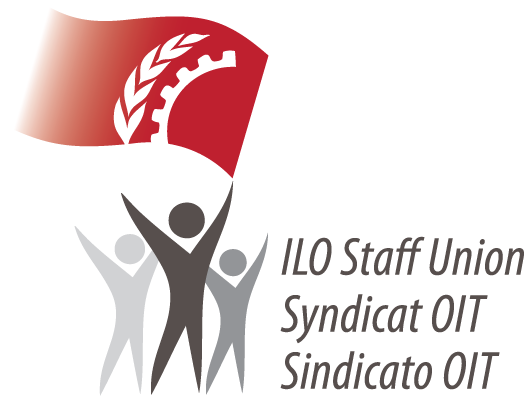 The Section of Former Officials of the ILO
The Section of Former Officials of the ILO
